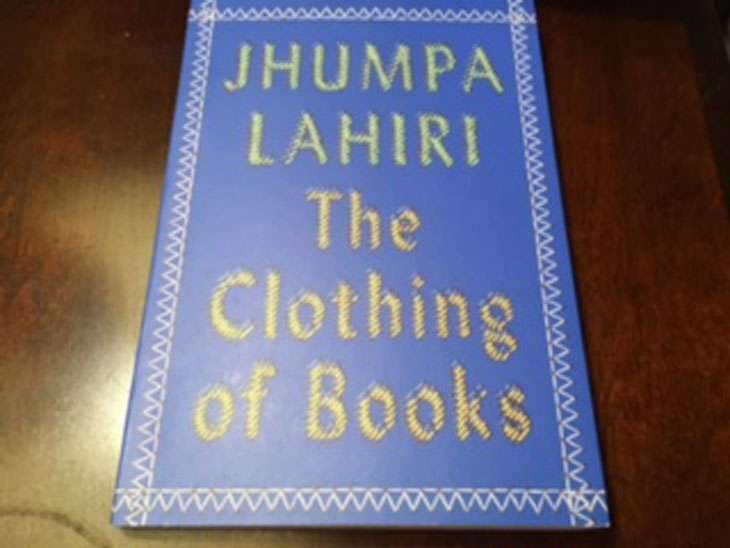Jhumpa Lahiri misses reading naked books, sans blurbs & photos

Pulitzer Prize-winning novelist Jhumpa Lahiri doesn't like the way her books are clothed. She believes that book jackets should fit like gloves, but that rarely happens. So she sometimes wonders if a "uniform would be the answer"?
In The Clothing of Books Lahiri explores the art of the book jacket, from the perspectives of both reader and writer - the complex relationships between text and image, author and designer, and art and commerce.
Such thoughts could only have come from an accomplished writer like Lahiri. Beautifully written, this little book was originally a speech she had delivered on writing in Florence.
A sense of uniformity
As a child Lahiri found the idea of a school uniform charming. On her trips to India she would see her cousins attend school in a uniform. In the US, she could wear what she wanted, but she was "tormented by this choice, by this freedom".
She stood out in school because of her name, her appearance and her unfashionableness. "No one wears bell-bottoms anymore, they're out of style", her classmates would ridicule her, and she "dreamt of sameness, even invisibility" - which she could have achieved only with a school uniform.
As an adult this anxiety persisted - "...the fear of being badly dressed, of choosing wrongly and being judged". Years later when she was debuted as a novelist at 32 - she found herself gripped by the same fear. This time it weren't her clothes, but the jacket that was designed to envelop her words.
"...I discovered that another part of me had to be dressed and presented to the world. But what is wrapped around my words - my book covers - is not of my choosing".

The window dressing
Lahiri is often forced to accept book jackets that she dislikes, there is one particular jacket - that elicits "an almost violent response" - especially when she is asked to autograph it.
"I am forced, at times, to accept book jackets that I dislike, that I find problematic, disappointing. I tend to give in. I say to myself, Let it go, it's not worth the battle. But I end up feeling afflicted, resentful."
The cover which marks the birth of a book, the cover that gives the book an independent life, the cover that disconnects the author from her creativity.
The news of a new cover is never exciting for Lahiri. Her reaction is ambivalent.
"The cover already knows my book, while I have yet to make its acquaintance. I try to get used to it, to get close to it." Covers can make her want to laugh or cry. They can depress and confuse, even infuriate her.
"But the right cover is like a beautiful coat, elegant and warm, wrapping my words as they travel through the world..."
Hot news on authors
The covers are designed with commerce and not aesthetics in mind - to grab the attention of the book buyers.
The book blurbs, Lahiri detests. She thinks "blurb" is one of the most "repugnant words in the English language".
"...It lists past awards and honours, quotes from critics and other writers who have liked the book, information pertaining to bestseller lists...and other 'hot' news..."
She would rather read a naked book. The one she read as a child when she went to libraries. The hardbound books without a blurb, without an author photograph, books with an anonymous, almost secretive quality.
She wishes for a world where there is far less mediation between the covers and the readers - unfortunately, we do live in that world anymore. And even Lahiri's prize-winning books cannot be sold that way.
First published: 28 January 2017, 11:50 IST






![BJP's Kapil Mishra recreates Shankar Mahadevan’s ‘Breathless’ song to highlight Delhi pollution [WATCH] BJP's Kapil Mishra recreates Shankar Mahadevan’s ‘Breathless’ song to highlight Delhi pollution [WATCH]](https://images.catchnews.com/upload/2022/11/03/kapil-mishra_240884_300x172.png)

![Anupam Kher shares pictures of his toned body on 67th birthday [MUST SEE] Anupam Kher shares pictures of his toned body on 67th birthday [MUST SEE]](https://images.catchnews.com/upload/2022/03/07/Anupam_kher_231145_300x172.jpg)






